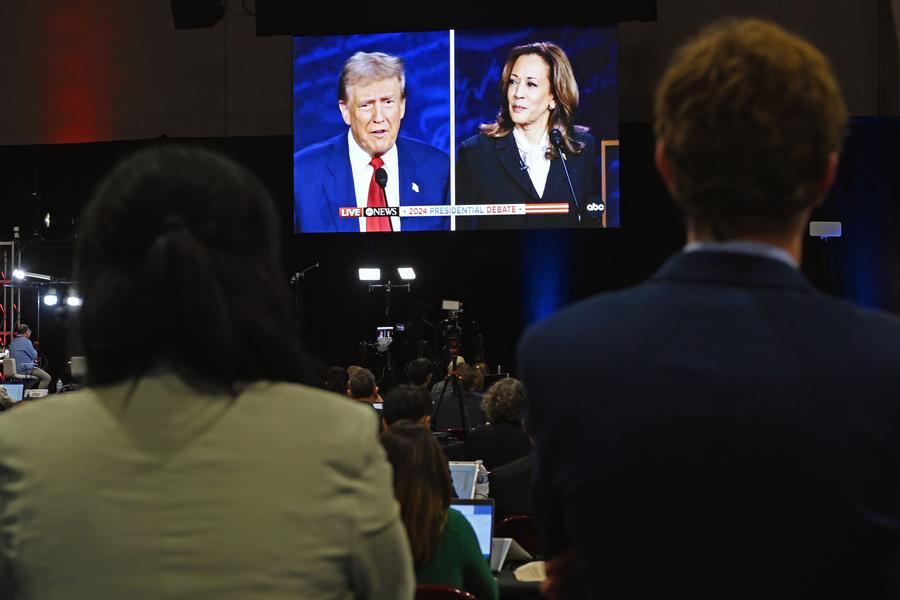
Very soon it will be known who will occupy the White House for the next four years. Not only Americans but also hundreds of millions of people across the world are anxiously waiting for the US presidential election results, because the US president's decisions will have a great impact on the global economy, the fate of the conflicts in Eurasia and the Middle East, and the future of the world as a whole.
Unlike media outlets in many other countries, the media in China are largely quiet on the US presidential election. They've been publishing timely reports on the election but have refrained from predicting which candidate has a better chance of winning.
One reason for that is the Chinese media are worried about China being accused of interfering in the US presidential election. The second reason is that the Chinese people seem to have accepted the fact that whichever candidate wins, the US' China-containment policy will not change.
I feel sad about that. I've visited the United States about 10 times in the past four decades, first as a student and later as a journalist. I miss the good old days when my American hosts and professors took turns to invite me to dinner, football games or local gatherings. Most of my old American friends have passed away, but their smiling faces are still fresh in my memory. I treasure their friendship and admire their quest to learn more about China from a Chinese student and later a journalist.
Despite their political differences, China and the US were on good terms for most of the 1980s and 1990s, when an increasing number of Chinese students went to study in the US and lots of people-to-people cultural exchanges took place. As a Chinese journalist, I was twice invited to closely observe the US presidential election. The two countries were on such "good terms" that the US even exported some military equipment to China.
Yet the US always thought it had the upper hand in its relations with China. Once China's economy and overall national strength increased to levels that the US was uncomfortable with, Washington felt its authority was being seriously challenged. That brought to an end what many American friends described as the "honeymoon" period.
I feel Americans are becoming less and less confident. Why else are the presidential candidates cursing each other in public using expletives? Also, there's hardly been any improvement in public facilities, and people's livelihoods and living standards over the past 40 years.
In contrast, China's economy has grown by leaps and bounds to become the second largest in the world in the past 40 years. And unlike 40 years ago when most, if not all, Chinese students relied on allowances and scholarships to study in the US, today hundreds of thousands of parents are paying from their pocket to send their children to study in the US.
However, Chinese students today are denied US visas. Those fortunate enough to get one have to find out whether they can register for the subject (s) of their choice, because the US administration is afraid that Chinese students might "steal" advanced technologies from the US and pass them on to Chinese enterprises.
Also, the US has sanctioned many Chinese enterprises and individuals on flimsy grounds. Washington has restricted the exports of chips to China, too, and imposed extra tariffs on electric vehicles imported from China, because it claims they enjoy unnecessary price advantage due to government subsidy.
The US administration may call these restrictions, sanctions and punitive tariffs as competition measures, but for the Chinese people, who believe in hard work, and only want to do business so they can lead a better life, these are moves aimed at checking China's rise.
I hope the new US president spends some time to find out what is frustrating US development and will take effective measures to address the problem. I also hope that under the new president, the US engages in fair competition with China and other countries. And I hope the new president realizes that the world is big enough for all countries to pursue their goals, and the US starts working with other countries again to address common global challenges and help build a better world.
The author is former deputy editor-in-chief of China Daily.


